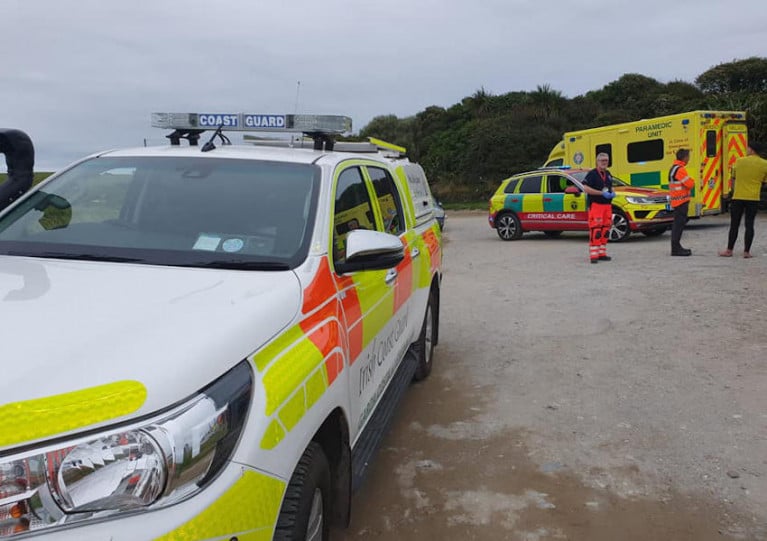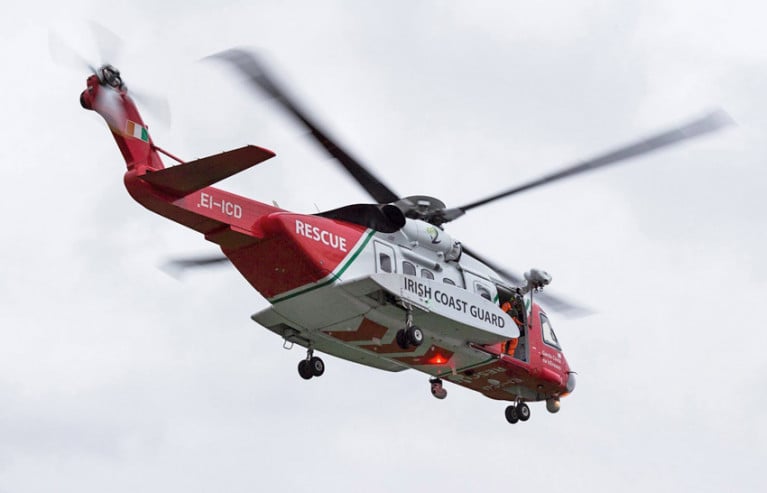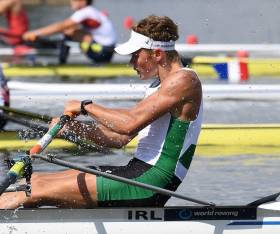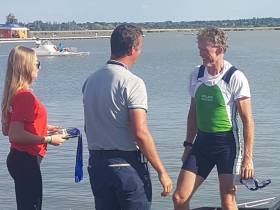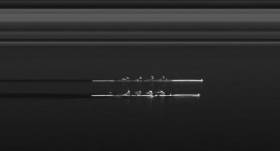Displaying items by tag: Cork
River Lee Light Rail Bridge Plans ‘Could Sterilise Cork City For Future Generations’
Plans for a new light rail bridge across the River Lee in Cork city centre have sparked concerns that the project would prevent any passage of vessels and “sterilise the city forever for future generations”.
The Echo reported last week on the multi-billion-euro transport plan for Cork that includes a light rail system similar to the Luas in Dublin, with a 25-stop route that could cross the city via a new bridge at Kent Station to the South Docklands.
This is the proposal that has raised the ire of Michael McCarthy, chairman of cruising industry network Cruise Europe, who fears the bridge would cut off the city from its maritime heritage.
McCarthy cites the pontoon by the coffee pods on Lapps Quay — “nothing but a few small rowing boats” — as an example of what could happen to the city without free access for vessels of all sizes.
And he argues that some councillors and officials who will be responsible for considering these plans have “no feel or empathy for the maritime or the marine”.
“The river made Cork City what it is today and now they are intent on sterilising it for ever when there is a very viable alternative,” he adds — suggesting that the light rail system could instead follow the old Cork-Blackrock-Passage-Crosshaven line using the existing bridges from Kent Station to City Hall.
Cork City councillors were briefed last week by the National Transport Authority on the plans, which form part of the Cork Metropolitan Area Transport Strategy (CMATS).
Next month a specialist team will be commissioned to analyse all route options for the scheme, which is expected to cost €1 billion in total. The Echo has more on the story HERE.
A local surfing school instructor raced to the rescue of a teenage boy caught in a rip current off a Co Cork beach at the weekend, as CorkBeo reports.
Luke Chambers of the Swell Surf School was with a surf class off Inch Beach near Whitegate on Sunday (26 July) when he spotted three teen sea swimmers in distress nearby.
Acting fast, Chambers got his surf students back on the beach safely before paddling out to the three boys as they were dragged out to sea by the sudden tide.
One of the stricken trio had managed to get onto a rocky reef, and the surfer assisted a second to climb onto the same reef.
Meanwhile, another man whom Chambers describes as an “angel” was keeping the third boy’s head above water, and they used the surfboard to bring him back to the beach where he was attended to by paramedics.
The boy, since named as Joey Kinahan, was taken to hospital as a precaution but has made a full recovery depite coming close to drowning.
CorkBeo has more on the story HERE.
The Irish Times reports that a 35-year-old man was airlifted to hospital with serious spinal injuries after a diving incident in Co Cork yesterday afternoon (Monday 1 June).
It’s understood that the man was diving from rocks near Nohoval Cove, between Kinsale and Crosshaven, when his foot caught and he landed on rocks.
Kinsale RNLI and gardaí attended the scene along with the Irish Coast Guard, which airlifted the casualty on board the Shannon-based Rescue 115 helicopter to Cork University Hospital.
Elsewhere, the search resumed this morning for a five-year-old boy believed to have fallen from a dinghy on Lough Mask.
RTÉ News reports that gardaí and the coastguard are searching the west side of the lough near Toormakeady in Co Mayo.
European Maritime Day Postponed To Later This Year
In light of the rapidly evolving situation and public health measures due to the coronavirus, a decision has been taken to postpone European Maritime Day in Cork Harbour until later this year.
The European Maritime Day Team released the following statement regarding European Maritime Day 2020:
Dear speaker, dear workshop organiser, dear stakeholder,
We would like to take this opportunity to thank you for your support for European Maritime Day (EMD) 2020 in Cork, Ireland on 14-15 May.
Given the implications of coronavirus for all countries including restrictions on travel, it is with regret that, together with Cork City Council and the Irish Marine Coordination Group, we have decided to defer EMD.
We are currently looking into possible alternative dates later in the year and will keep you posted.
We thank you for your understanding and hope that you will be able to join us in Cork later in 2020.
Apply For A Stand At European Maritime Day Expo In Cork
Sunday 15 March is the deadline to apply for a stand at the European Maritime Day Expo in Cork this May.
Ahead of the official launch of registration later this month for the conference taking place at Cork City Hall on Thursday 14 and Friday 15 May, applications are now open for stands at the Expo taking place over the two days.
European Maritime Day (EMD) is the annual EU meeting point on maritime affairs and a sustainable blue economy, and targets maritime professionals, entrepreneurs and ocean leaders.
This year’s conference will also be held back-to-back with SeaFest, Ireland’s largest free family-friendly maritime festival.
As such, EMD is an ideal place for maritime stakeholders to showcase innovative ideas, products and services related to the conference themes, as well as to meet, exchange experiences and discuss the latest developments on blue economy.
Get more information from the EMD website, and apply for a stand at the EMD Expo HERE.
Sutton and Legresley Win Time Trial for Cork Sculling Ladder
#Rowing: Hugh Sutton of UCC Rowing Club was the overall winner of the 48th Cork Sculling Ladder time trial, which was run on calm water and on an outgoing tide at the Marina on the River Lee on Sunday. Sutton covered the 1800 metres in seven minutes and 3.4 seconds. Jessica Legresley of Shandon Boat Club won the women’s trial in 7:57.5.
Two previous winners of the the ladder, Jack Dorney and Andy Harrington, set a time of 6:42.1 as they won the first coxless pairs time trial. Amy Mason and Grace Collins won the the women’s pairs time trial in 7:36.1.
The event, which was sponsored by Argos Fire, had a big entry. The oldest competitor on the day was 83-year-old Seamus Quane of Shandon Boat Club.
The sculling and coxless pairs ladders continue with two-boat racing until March 2020.
Crowley Leads Ireland to More Masters Wins in Hungary
#Rowing: Irish crews added four more wins to their haul over the weekend at the World Masters Regatta at Lake Velence in Hungary. The wins came on Saturday. Denis Crowley featured in a composite eight, which beat strong British opposition, and in a four – bringing his personal tally to eight wins. Brendan Smyth and Patrick Fowler of Commercial won in the double and Milo and Pat Murray of Cappoquin won the in the pair. A mixed eight finished second on Sunday.
World Masters Regatta, Lake Velence, Hungary (Selected Results; Irish interest; Winners)
Saturday
Men
Eight (E – avg 55 or more): Galway, Belfast BC, Neptune, Clonmel, Commercial, Shannon (G Murphy, A McCallion, K McDonald, D Crowley, F O’Toole, O McGrath, G O’Neill, C Hunter, M McGlynn) 3:04.90
Four (D – avg 50 or more): Commercial, Neptune (B Smyth, F O’Toole, G Murphy, D Crowley) 3:24.72.
Pair (F – avg 60 or more): Cappoquin (P Murray, M Murray) 6:12.10.
Sculling, Double (C – avg 43 or more): Commercial (B Smyth, F Fowler) 3:28.39.
Crowley a Six Shooter at World Masters Regatta
#Rowing: Denis Crowley of Commercial brought his tally of wins to a remarkable six after three days at the World Masters Regatta in Budapest. In just one day, the 57-year-old won in the coxless four and twice in the single sculls – in the C class (43 years or more) and the E class for 55 or more. The decision to form composite crews again paid off for the Irish, with wins in the C eight and the D coxed four, along with Crowley’s haul.
World Masters Regatta, Budapest, (Selected Results, Irish interest, winners)
Friday
Men
Eight
(C – 43 or more): Heat Four: Commercial, Cork, Neptune, Clonmel, Shannon, Galway, Castleconnell (B Crean, B Smyth, R Carroll, O McGrath, G O’Neill, P Fowler, B O’Shaughnessy, K McDonald; cox: M McGlynn) 3:09.75.
Four
(E – 55 or more) Heat Five: Commercial, Neptune, Belfast BC, Galway (D Crowley, G Murphy, C Hunter, A McCallion)
Four, coxed
(D – 50 or more) Heat 3: Galway, Neptune, Castleconnell, Clonmel (G O’Neill, O McGrath, B O’Shaughnessy, T Dunn; cox: M McGlynn) 3:35.89.
Sculling, Single
(C - 43 or more) Heat 19: Commercial (D Crowley) 3:49.92.
(E – 55 or more) Heat 8: Commercial (Crowley)
Cork Clubs on a Run at Irish Championships
#Rowing: Cork clubs had a set of good results in the first session of Sunday finals at the Irish Rowing Championships at the National Rowing Centre.
Cork Boat Club's junior women's pair started the ball rolling, while Skibbereen then took their second title of Championships as Aodhan Burns proved a strong winner of the lightweight single sculls.
Margaret Cremen of UCC had a huge win in the lightweight single sculls, and Lee added the junior men's double to the junior quadruple title they had won on Saturday.
The tighest finish came in the men's club coxed four. NUIG made a tremendous effort to catch St Michael's of Limerick but they fell short by just .329 of a second.
Commercial of Dublin and Fermanagh's Enniskillen Royal Boat Club are having a good reatta. Enniskillen won the men's intermediate pair, while Commercial won the womens intermediate coxed four.
Davis Of Lee Valley the Irish Junior Champion at Fourteen
#Rowing: Holly Davis gave the crowds a sensational result at the Irish Championships. The Lee Valley girl came through a good battle with Eabha Benson of St Michael's, to pull away and win. The remarkable thing is that Davis is just 14. She does not turn 15 until January 10th next year, leaving her with four years at Junior level.
The men's junior coxed four also electrified the crowd: Colaiste Iognaid and Enniskillen duked it out down the course. The Galway crew got away to win as their emotional supporters roared them on.
Youth was the theme of this regatta: Kevin O'Donovan, who is a junior, won the club single, while Anna Tyther, also under 18 teamed up with Zoe Hyde to win the intermediate double for Killorglin.
The three other titles on offer in this first Saturday session went three different ways: Commercial's strong senior men's programme was on show as they won the men's quadruple; Cork had a fine win in the intermediate men's eight; Trinity's A crew won the women's novice eight.



























